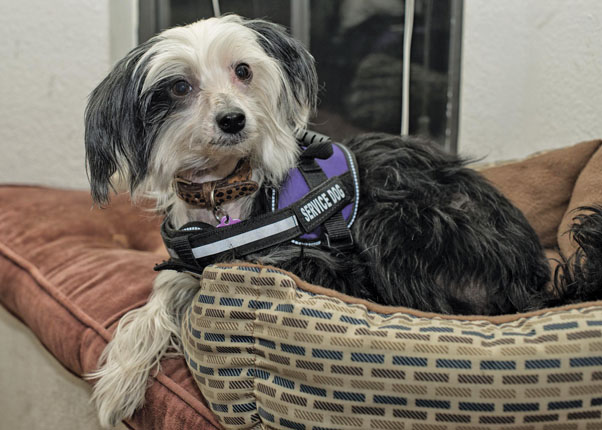They say diamonds are a girl’s best friend, but Violet Mach, former Airman, favors Penelope, her service dog.
Returning home from deployment can be a difficult journey, both physically and emotionally. Veterans who had traumatic experiences while deployed can feel alienated from family and friends who may not have shared those experiences. In such cases, the companionship of a dog may improve the veteran’s mood and help with stress by providing judgment-free companionship.
Veterans who are diagnosed with Post-Traumatic Stress Disorder (PTSD) may especially experience those benefits.
“My service dog allows me to live with my PTSD with less stress,” said Mach. “When I have a trigger, she distracts me, allowing my mind to focus on her and not on the stressfulness of a situation.”
Additionally, the security provided by having a service dog may help those veterans who have a difficult time being in a crowd or unfamiliar place.
“Being able to bring my dog places that dogs wouldn’t ordinarily be allowed allows me to feel more secure and makes me want to go in places that would not feel comfortable without her,” said Mach. “Smelling her, touching her, just being with her makes the stress of situations melt away, a feeling I didn’t have before having my service dog.”
If you are looking for a service or an emotional-support dog, do I internet search for “service dogs for veterans” and carefully research any organizations you contact. Only get a dog if you are confident it is well trained and you have the ability to care for your companion. You need to be there for your canine battle buddy because he or she will be there for you.
The good news is that although the Veterans Administration does not currently provide service dogs for physical or mental health conditions, including PTSD, it does provide veterinary care for service dogs that are deemed medically necessary. To learn more visit va.gov and search “service dogs.”



